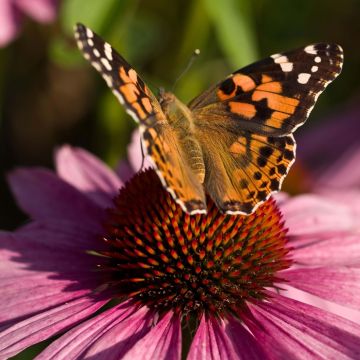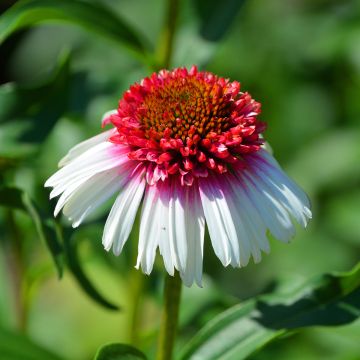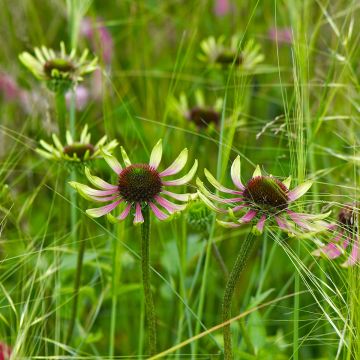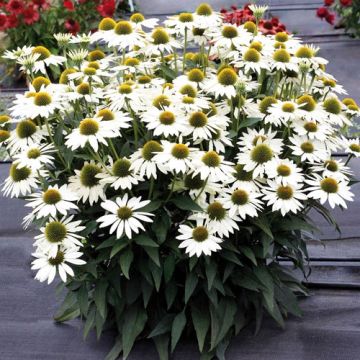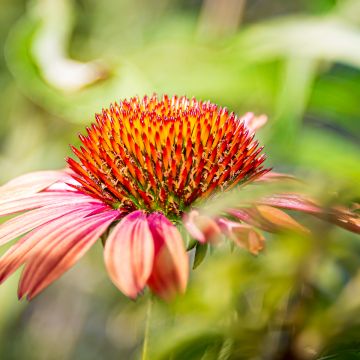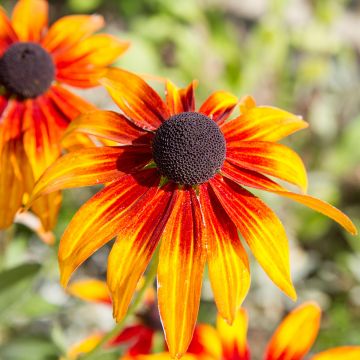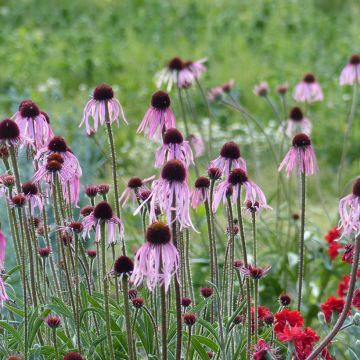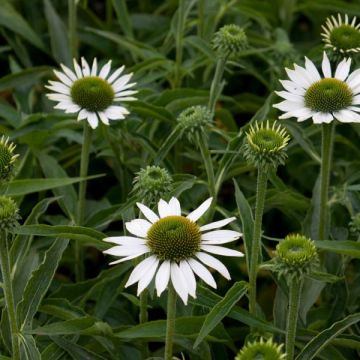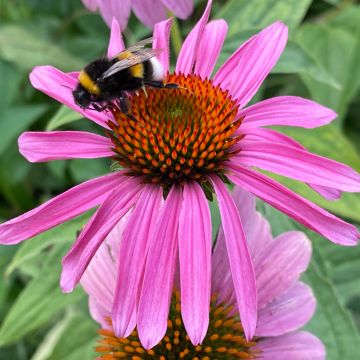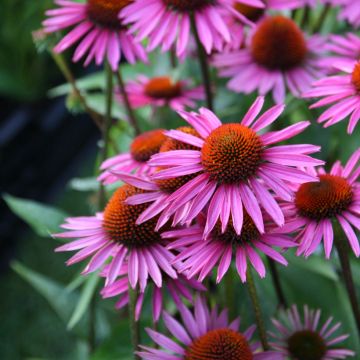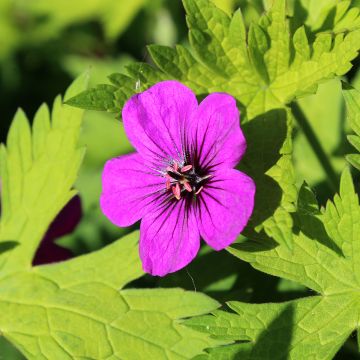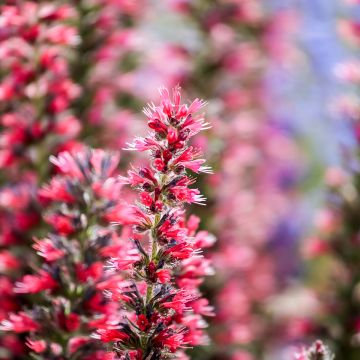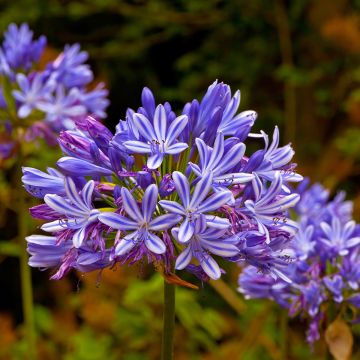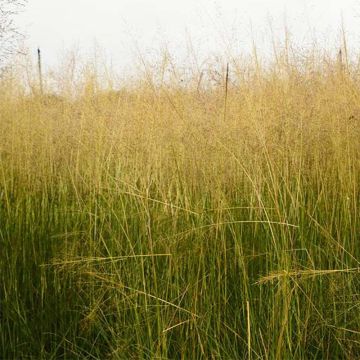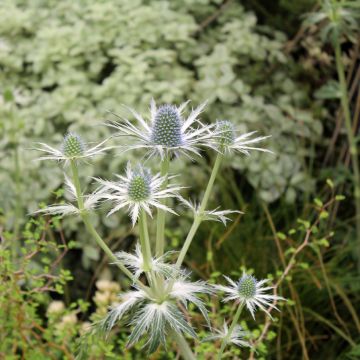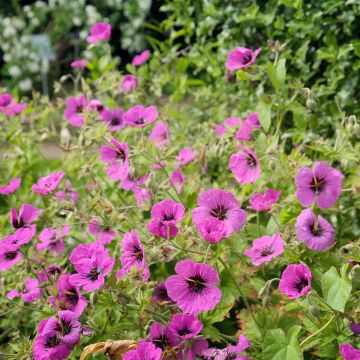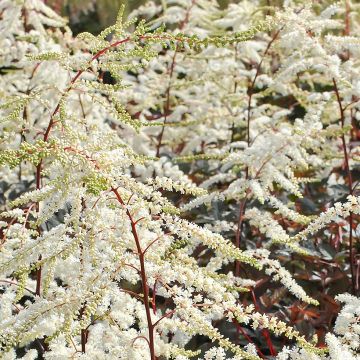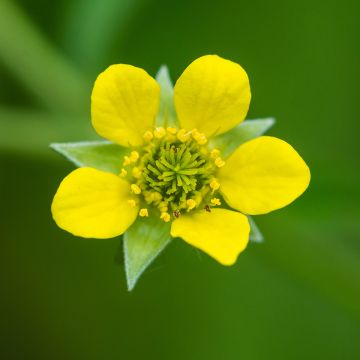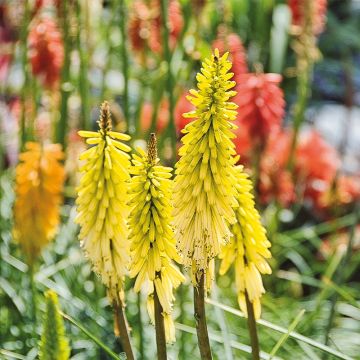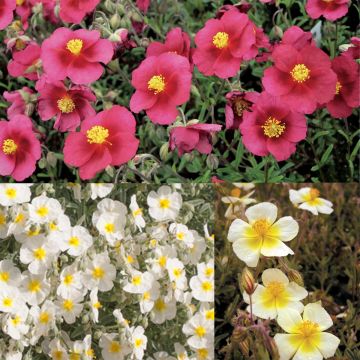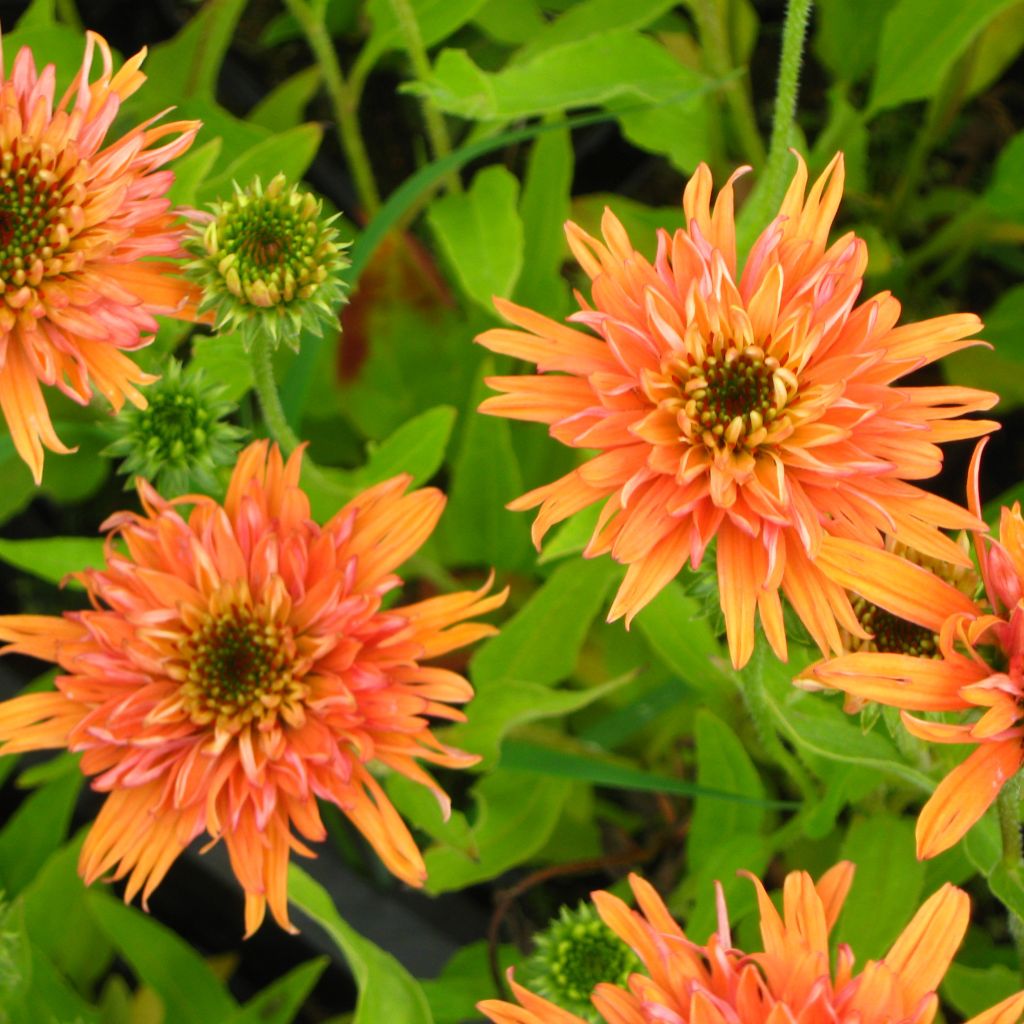

Echinacea purpurea Colourburst Orange - Purple Coneflower
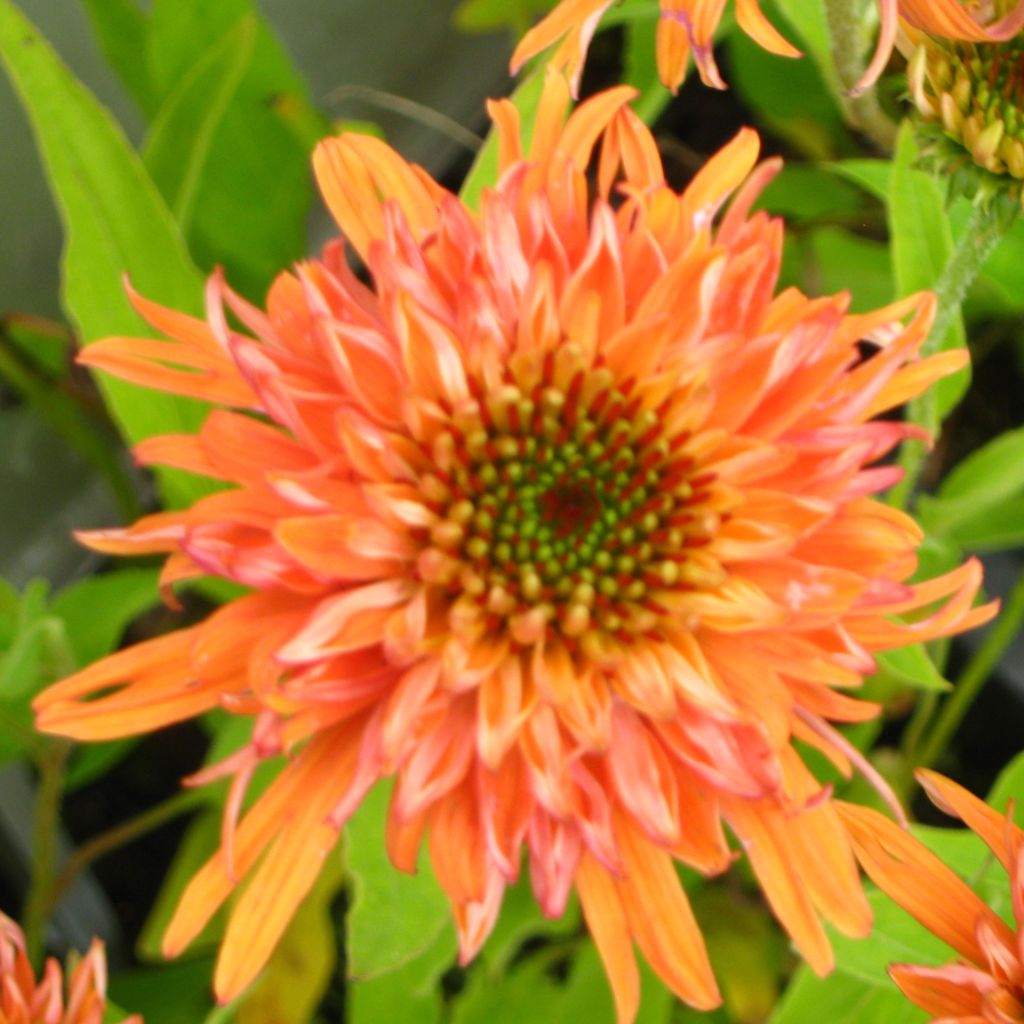

Echinacea purpurea Colourburst Orange - Purple Coneflower
Echinacea purpurea Colourburst Orange - Purple Coneflower
Echinacea purpurea Colourburst Orange
Purple Coneflower, Eastern Purple Coneflower
USDA Zone 8c Planted in east-facing exposure, receives very little shade. As indicated in the descriptive sheet, there is a long "vegetation" phase during which the fate of the plant seems hanging. Once this period is over, Echinacea Colourburst Orange delights us with a beautiful, vibrant orange flowering. Of course, it takes a while, but it's worth it. In our latitudes (near Avignon), it requires a little watering during the summer (drought).
Perle, 06/07/2020
Order in the next for dispatch today!
Dispatch by letter from €3.90.
Delivery charge from €5.90 Oversize package delivery charge from €6.90.
Current delivery delay: 2 days.
More information
This item is not available in your country.
Schedule delivery date,
and select date in basket
This plant carries a 12 months recovery warranty
More information
We guarantee the quality of our plants for a full growing cycle, and will replace at our expense any plant that fails to recover under normal climatic and planting conditions.
From €5.90 for pickup delivery and €6.90 for home delivery
Express home delivery from €8.90.
Does this plant fit my garden?
Set up your Plantfit profile →
Description
Echinacea 'Colourburst Orange' or Purple Coneflower is a perennial with a particularly long flowering period and a vibrant display. Both in terms of its colour: a very warm and vibrant orange, and its semi-spherical shape that evolves throughout its blooming. It starts with a dense and bushy daisy-shaped flower with a brown centre bordered by green, which then gradually opens up and swells like a cushion, finally elongating its ligules located on the perimeter and releasing them backwards. Afterwards, the achenes (their fruits) take over, much to the delight of the birds that feast on them. This robust plant accompanies us throughout the summer and welcomes autumn with pleasure, thanks in particular to the fresh and dried bouquets it offers us.
Originating from North America, where it has already naturally colonized many states, Echinacea has been with us for many years. Originally, it settles spontaneously in the wild spaces: vast meadows, forest edges, roadsides... As a result, here it is content with any type of soil, any type of climate, and displays a robustness and hardiness that gardeners appreciate. However, it prefers deep, well-drained soils and will establish itself more easily (and therefore withstand drought) if initially placed in moist soil. Note that it may take its time to settle, but then it shows resistance and longevity. It thrives in full sun or under light shade. It requires almost no care, except for the traditional little grooming which consists of removing faded flowers as desired.
This herbaceous perennial, belonging to the Asteraceae family, has an upright and bushy habit. The leaves are deciduous, rather vibrant green, hairy, and quite thick. They are lanceolate, longer and more numerous at the base, but alternate and sparse along the stems. The stems are long, sturdy, and bear large heads measuring 5 to 10cm (2 to 4in) in diameter at their tops. The numerous crossbreedings from which most varieties now originate have multiplied their characteristics. The colours and shapes are abundant. They all consist of a cone-shaped, often brown centre, sometimes cylindrical, which can become very prominent. It is surrounded by ligules, more or less long, arranged in one or more rows, giving it the simple and wise appearance of a large daisy or, on the contrary, that of a tousled pompom. The variations are limitless, and everyone will find their heart's desire among the cultivars now available. Their vibrant hues are essential in all flower beds or even containers. They also actively animate the garden thanks to the pollinators they attract.
The slender habit of 'Colourburst Orange' suggests placing it behind smaller clumps, such as Heucheras or perennial Geraniums. With a height ranging from 40 to 60cm (16 to 24in) and a minimum spread of 35cm (14in), it easily fits between Yarrows and Sneezeweeds. Its orange colour is essential if you want to create a warm ensemble, in the spirit of 'flamboyant summer and autumn'. But its hue will not go unnoticed in a multicoloured ensemble. It enjoys the company of Grasses, responding to their wild appearance, but also alongside Dahlias, enhancing their brilliance.
Report an error about the product description
Echinacea purpurea Colourburst Orange - Purple Coneflower in pictures
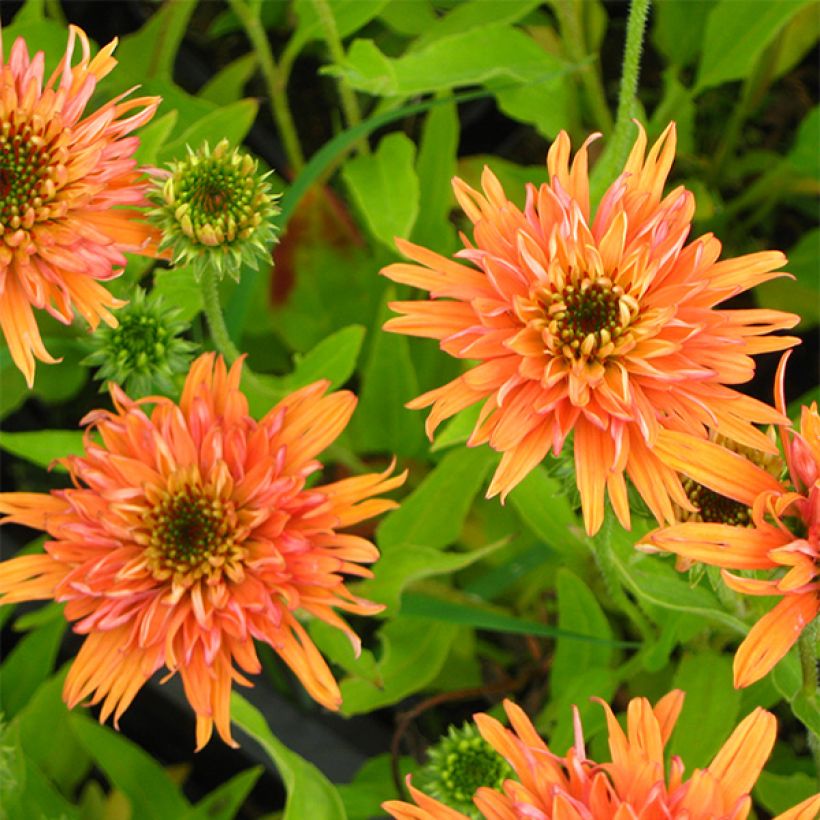

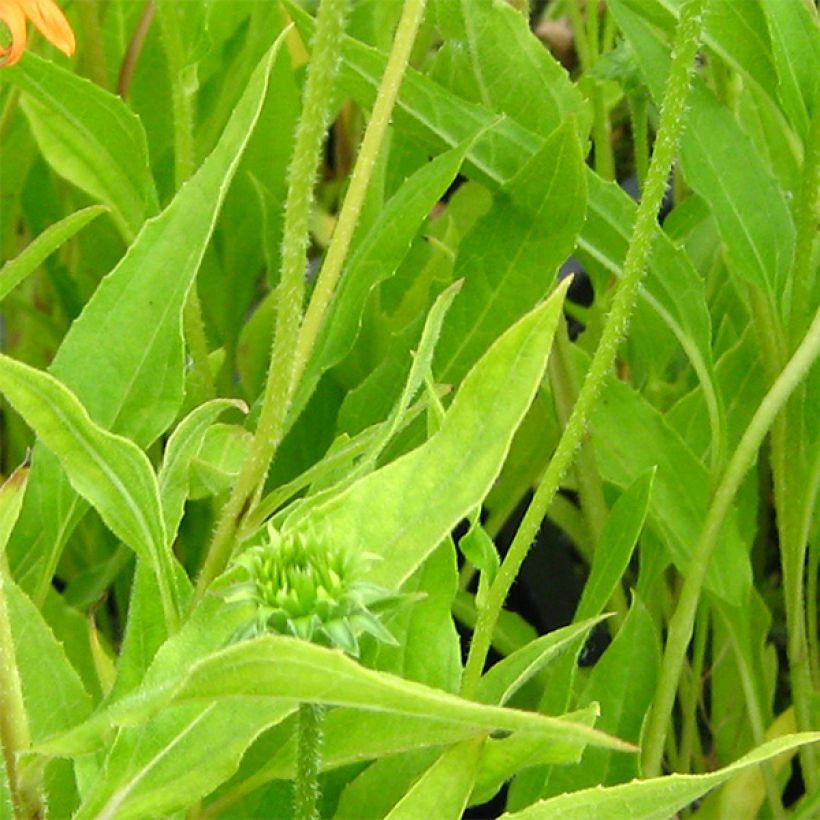

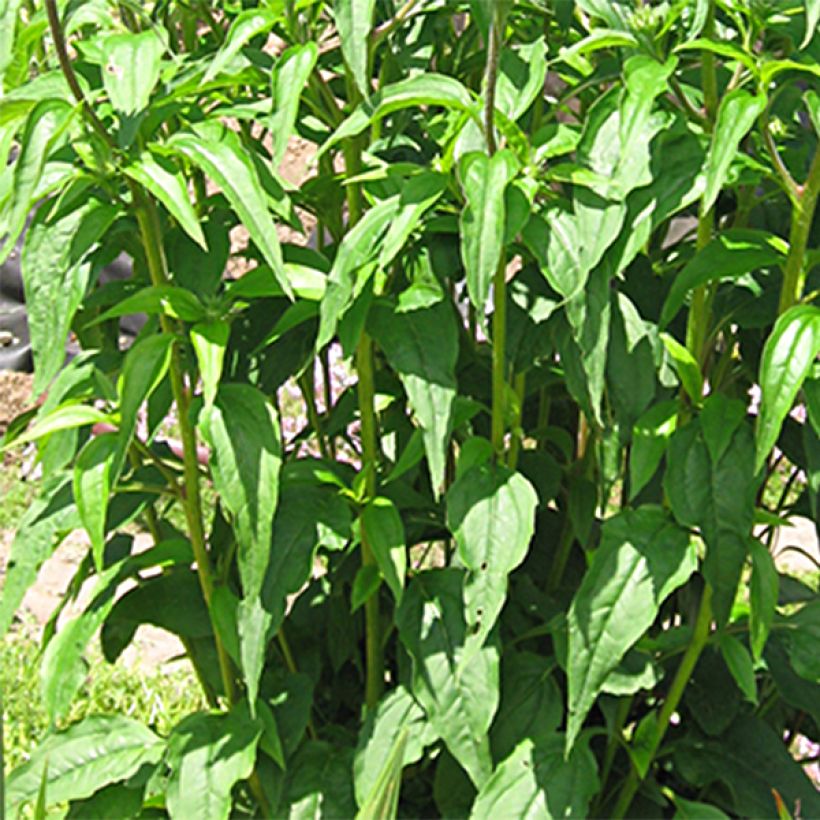

Flowering
Foliage
Plant habit
Botanical data
Echinacea
purpurea
Colourburst Orange
Asteraceae
Purple Coneflower, Eastern Purple Coneflower
Cultivar or hybrid
Other Echinacea - Coneflower
Planting and care
The 'Colourburst Orange' Purple Coneflower settles in place in spring or autumn under a sunny or partially shaded exposure. It does not require a specific soil, but it will prefer it to be loosened beforehand to allow it to establish itself. Feel free to water it at the beginning, but without excess (it doesn't like to have its feet in water for too long), it will better withstand drought afterwards.
It is a perennial that may take time to expand, but it proves to be robust, resistant to diseases, weather conditions, and frost (up to -15°C (5°F)). Additionally, once established, it is long-lasting and flowering.
You can remove faded flowers throughout the season to stimulate flowering or leave them on the plant to attract birds from autumn and enjoy its slender silhouette all winter. Cut the stems in early spring. Division of the stump may be considered if it shows signs of fatigue: increased sensitivity to powdery mildew and sparse flowering.
Planting period
Intended location
Care
-
, onOrder confirmed
Reply from on Promesse de fleurs
Summer flowering perennials
Haven't found what you were looking for?
Hardiness is the lowest winter temperature a plant can endure without suffering serious damage or even dying. However, hardiness is affected by location (a sheltered area, such as a patio), protection (winter cover) and soil type (hardiness is improved by well-drained soil).

Photo Sharing Terms & Conditions
In order to encourage gardeners to interact and share their experiences, Promesse de fleurs offers various media enabling content to be uploaded onto its Site - in particular via the ‘Photo sharing’ module.
The User agrees to refrain from:
- Posting any content that is illegal, prejudicial, insulting, racist, inciteful to hatred, revisionist, contrary to public decency, that infringes on privacy or on the privacy rights of third parties, in particular the publicity rights of persons and goods, intellectual property rights, or the right to privacy.
- Submitting content on behalf of a third party;
- Impersonate the identity of a third party and/or publish any personal information about a third party;
In general, the User undertakes to refrain from any unethical behaviour.
All Content (in particular text, comments, files, images, photos, videos, creative works, etc.), which may be subject to property or intellectual property rights, image or other private rights, shall remain the property of the User, subject to the limited rights granted by the terms of the licence granted by Promesse de fleurs as stated below. Users are at liberty to publish or not to publish such Content on the Site, notably via the ‘Photo Sharing’ facility, and accept that this Content shall be made public and freely accessible, notably on the Internet.
Users further acknowledge, undertake to have ,and guarantee that they hold all necessary rights and permissions to publish such material on the Site, in particular with regard to the legislation in force pertaining to any privacy, property, intellectual property, image, or contractual rights, or rights of any other nature. By publishing such Content on the Site, Users acknowledge accepting full liability as publishers of the Content within the meaning of the law, and grant Promesse de fleurs, free of charge, an inclusive, worldwide licence for the said Content for the entire duration of its publication, including all reproduction, representation, up/downloading, displaying, performing, transmission, and storage rights.
Users also grant permission for their name to be linked to the Content and accept that this link may not always be made available.
By engaging in posting material, Users consent to their Content becoming automatically accessible on the Internet, in particular on other sites and/or blogs and/or web pages of the Promesse de fleurs site, including in particular social pages and the Promesse de fleurs catalogue.
Users may secure the removal of entrusted content free of charge by issuing a simple request via our contact form.
The flowering period indicated on our website applies to countries and regions located in USDA zone 8 (France, the United Kingdom, Ireland, the Netherlands, etc.)
It will vary according to where you live:
- In zones 9 to 10 (Italy, Spain, Greece, etc.), flowering will occur about 2 to 4 weeks earlier.
- In zones 6 to 7 (Germany, Poland, Slovenia, and lower mountainous regions), flowering will be delayed by 2 to 3 weeks.
- In zone 5 (Central Europe, Scandinavia), blooming will be delayed by 3 to 5 weeks.
In temperate climates, pruning of spring-flowering shrubs (forsythia, spireas, etc.) should be done just after flowering.
Pruning of summer-flowering shrubs (Indian Lilac, Perovskia, etc.) can be done in winter or spring.
In cold regions as well as with frost-sensitive plants, avoid pruning too early when severe frosts may still occur.
The planting period indicated on our website applies to countries and regions located in USDA zone 8 (France, United Kingdom, Ireland, Netherlands).
It will vary according to where you live:
- In Mediterranean zones (Marseille, Madrid, Milan, etc.), autumn and winter are the best planting periods.
- In continental zones (Strasbourg, Munich, Vienna, etc.), delay planting by 2 to 3 weeks in spring and bring it forward by 2 to 4 weeks in autumn.
- In mountainous regions (the Alps, Pyrenees, Carpathians, etc.), it is best to plant in late spring (May-June) or late summer (August-September).
The harvesting period indicated on our website applies to countries and regions in USDA zone 8 (France, England, Ireland, the Netherlands).
In colder areas (Scandinavia, Poland, Austria...) fruit and vegetable harvests are likely to be delayed by 3-4 weeks.
In warmer areas (Italy, Spain, Greece, etc.), harvesting will probably take place earlier, depending on weather conditions.
The sowing periods indicated on our website apply to countries and regions within USDA Zone 8 (France, UK, Ireland, Netherlands).
In colder areas (Scandinavia, Poland, Austria...), delay any outdoor sowing by 3-4 weeks, or sow under glass.
In warmer climes (Italy, Spain, Greece, etc.), bring outdoor sowing forward by a few weeks.


































